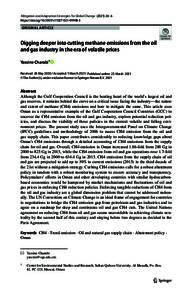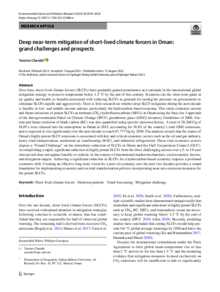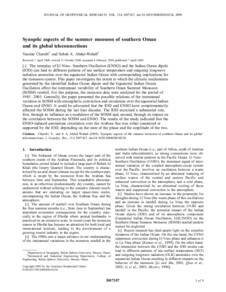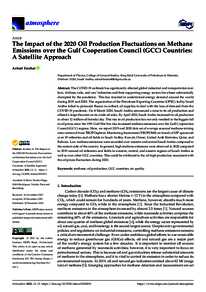Document
Digging deeper into cutting methane emissions from the oil and gas industry in the era of volatile prices.
Identifier
DOI: 10.1007/s11027-021-09948-3
Source
Mitigation and Adaptation Strategies for Global Change. v. 26, 2, 6
Country
Netherlands.
City
Dordrecht
Publisher
Springer Science and Business Media B.V.
Gregorian
2021-02-01
Language
English
English abstract
Although the Gulf Cooperation Council is the beating heart of the world’s largest oil and gas reserves, it remains behind the curve on a critical issue facing the industry—the nature and extent of methane (CH4) emissions and how to mitigate the same. This article uses Oman as a representative example of the Gulf Cooperation Council Countries (GCC) to uncover the CH4 emission from the oil and gas industry, explore potential reduction policies, and discuss the viability of these policies in the current volatile and falling environment prices. The present study uses the Intergovernmental Panel on Climate Change (IPCC) guidelines and methodology of 2006 to assess CH4 emission from the oil and gas supply chain. This paper contributes considerably to reducing knowledge gaps about Oman’s CH4 emissions through a detailed accounting of CH4 emissions from the supply chain for oil and gas. Overall, CH4 emission in Oman increased 1.86-fold from 288 Gg in 2000 to 825 Gg in 2015, while the CH4 emission from oil and gas operations rose 1.7-fold from 234.4 Gg in 2000 to 634.4 Gg in 2015. CH4 emissions from the supply chain of oil and gas are projected to add up to 30% to current emissions (2015) in the third decade of the 21st without a mitigation strategy. Curbing CH4 emissions calls for a robust abatement policy in tandem with a robust monitoring system to ensure accuracy and transparency. Policymakers’ efforts in Oman and other developing countries with similar hydrocarbon-based economies would be hampered by market mechanisms and fluctuations of oil and gas prices in enforcing CH4 reduction policies. Enforcing tangible reductions of CH4 from the oil and gas industry are a global dimension problem that cannot be addressed nationally. The UN Convention on Climate Change is an ideal frame of engagement for countries in negotiations to bridge the CH4 emission gap from petroleum and gas industries and to agree on a roadmap for deep and continuous oil and gas CH4 cuts. The United Nations agreement on reducing CH4 from oil and gas seems unavoidable in achieving climate neutrality by the second half of this century and staying below two degrees as decided in the Paris Agreement.
ISSN
1381-2386
Category
Journal articles





